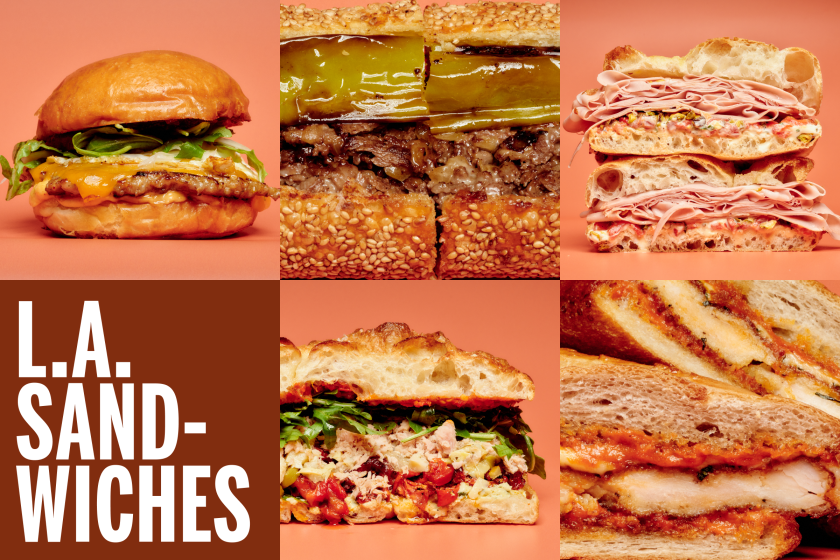Weight Gain Not Equal to Food Volume
Dear Dr. Blonz: There is a rather animated discussion going on at our office, and I decided to turn to a pro in order to quell the discord. Some people in my office think that, regardless of what a person eats, he or she cannot gain any more weight then the actual weight of the food consumed. For example, if one consumed a pound of food--say, for example, M&Ms--one; could only expect to gain a pound of weight. We are not taking normal metabolic processes and waste removal into consideration, for the sake of argument. Any insight? Thanks in advance for stopping a heated debate.
--C.H., via e-mail
Dear C.H.: I appreciate your vote of confidence, but the answer may not be as clear-cut as you and your co-workers hope. It is the “regardless of what a person eats” that is giving me pause, as this can make a difference. It also matters what you’ve eaten in the previous few days; when you weigh yourself; if water would be consumed with or after the meal, and, if so, whether water weight is counted--i.e., when you drink a glass of water, do you consider yourself to have “gained” the weight of the water?
It gets a bit complicated, so let’s start with the basics: After eating a pound of candy (with no water) in a one-hour sitting, in addition to feeling uncomfortably bloated, you would have gained no more than 1 pound. But as the day progressed, your weight would begin to vary--and perhaps increase.
Your office group is not the first to debate weight gains that don’t seem to jibe with the volume and weight of food consumed. The explanation for this stems from the fact that protein tissue (muscle, organs, etc.) and stored carbohydrates (glycogen) are about 80% water by weight. And while adipose (fat) tissue is more than 90% fat by weight, there is a small amount of water and protein that gets incorporated into the fat cells. This means that if the food you ate was being used to make body tissue, the water consumed afterward might end up being incorporated into the final product.
This quirk of body composition, incidentally, is also at play in the deceptive initial successes of low- and no-carbohydrate diets. If the body receives no sugar or other carbohydrates, it begins seeking alternative sources to help maintain its blood glucose level. It would first turn to glycogen, a form of stored carbohydrate found in the liver, but it would also turn to protein, since some of the amino acids that make up protein can be changed into glucose.
In either case, for each gram of body substance used, there would be a release of 3 grams of water. This explains why a few days of low-carb (less than 10 grams a day) eating can result in a significant drop in weight. (I don’t recommend low-carb diets as a rule, as there are other side effects as well.) The catch is that this “lost” weight reappears as soon as carbohydrates are again consumed.
*
Dear Dr. Blonz: I was snipping coupons today and came across one for eggs. It said the eggs have omega-3 in them (I forget if they called ‘em fatty acids or anything). Is that the same fat that is in fish? If so, how does it get into the eggs?
--C.
Dear C.: After population studies made the connection between higher intake of fish and better health, scientists discovered that one of the key factors was a type of fat found in fish, referred to as the omega-3 fatty acids. Eggs don’t usually contain much of the omega-3s, but a researcher came up with the idea of enriching chicken feed with omega-3 fats in the hopes of upping the omega-3 content in eggs. At first, a fish oil (menhaden oil) was used, but poultry scientists later began using flaxseed meal--flax being another source of the omega-3 fatty acids. In either case, the poultry scientists were able to achieve significant increases in the eggs’ omega-3 content without having any significant effect on their taste. Eggs are not as healthful as fish, and also cost more, but the bottom line is that they have become a source of these essential fatty acids. Additionally, some brands are high in vitamin E--another result brought about through feed enrichment.
*
Ed Blonz is the author of “Power Nutrition” (Signet, 1998) and the “Your Personal Nutritionist” book series (Signet, 1996). Send questions to: “On Nutrition,” Ed Blonz, c/o Newspaper Enterprise Assn., 200 Madison Ave., New York, NY 10016 or e-mail to: [email protected]. Personal replies cannot be provided.
More to Read
Eat your way across L.A.
Get our weekly Tasting Notes newsletter for reviews, news and more.
You may occasionally receive promotional content from the Los Angeles Times.










